[PHOTOGRAPHY] Henri Cartier-Bresson - Purist and Master of The Decisive Moment 📷
"Chemistry, physics, and optics enlarge our scope; it is for us to apply them as part of our technique in order to see whether they can add to what we wish to express. But a whole fetishism has grown up around the technique of photography. Technique should be so conceived and adapted as to induce a way of seeing things, preferably in essentials, excluding the effects of gratuitous virtuosity and other ineptitudes. Technique is important in that we have to master it, but it is the result that counts." - Henri Cartier-Bresson
Yet it's precisely technology that I associate him with, at least to some extent. But not the obvious, such as focal length, aperture or shutter speed, but rather his unusually well-developed sense of composition and timing.
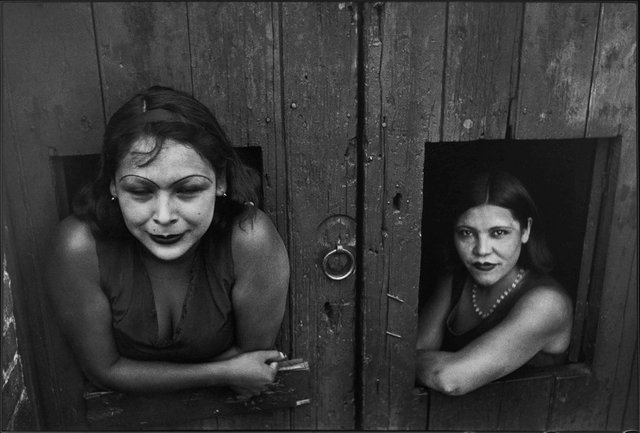
Cartier-Bresson's (1908-2004) importance can hardly be overstated. If someone would be assigned the imaginary title "The Picasso of Photography" it would be him; few photographers can line up as many classical and iconic pieces, images that forever etched themselves into our collective consciousness. He had an equally great interest in painting and drawing as in the art of photography. Moreover, his texts about photography are highly useful; they're insightful, forthright and deeply empirically grounded. You can for example read about his reluctance towards the tricks and manipulations of the darkroom. It's in the photographic moment that the magic happens - that's where you as a photographer must do your important and irreversible choice.
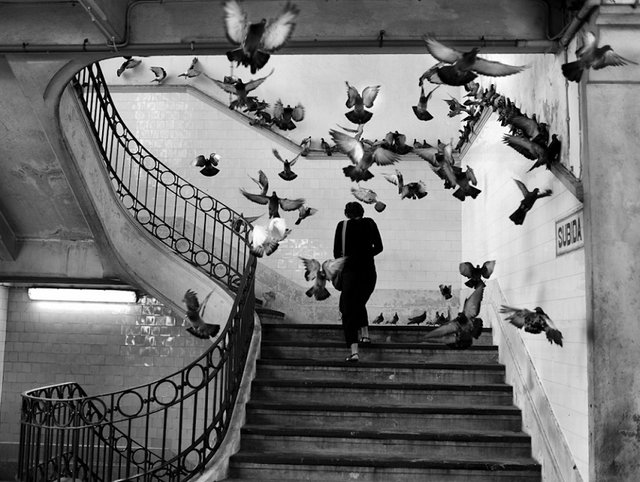
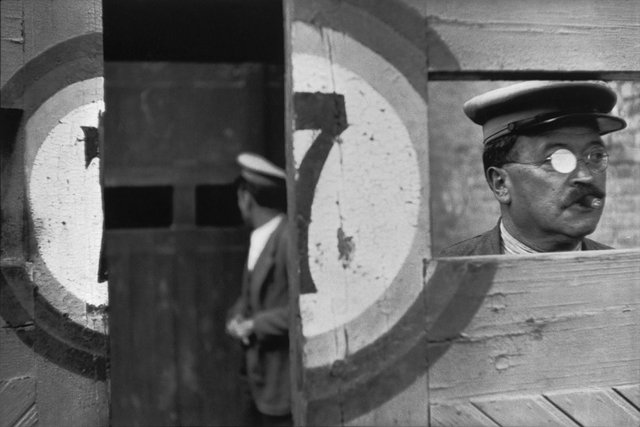
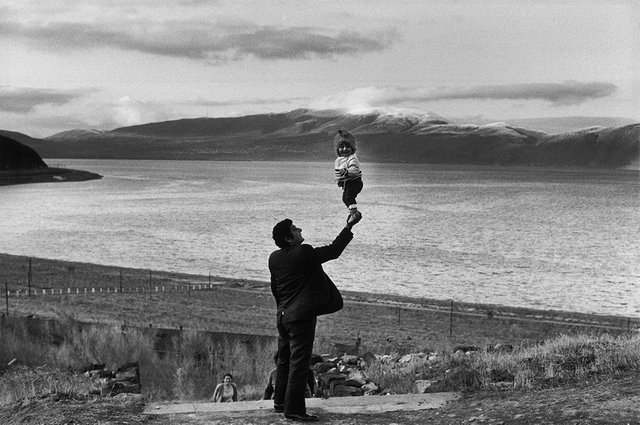
Henri Cartier-Bresson meticulously composed the pictures in the viewfinder and rarely cropped them. One of his hallmarks is that his photos include the first few millimeters of the unexposed negative around the image, resulting in a black border around the developed photography. Moreover, he believed that the color photo was something vulgar. Normally I share his skepticism when it comes to color photos. But of course there are plenty of exceptions. The Autochrome Lumière photos for example, are usually highly suggestive, with their fine grid of potato starch grains in blue, red and green. I wonder what Cartier-Bresson would say about the photoshop generation of today.
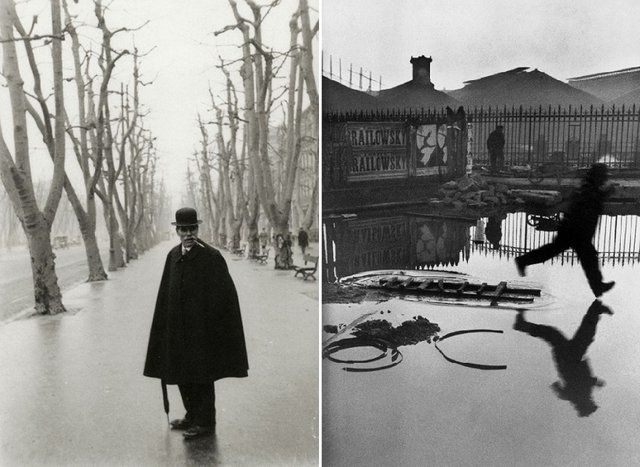
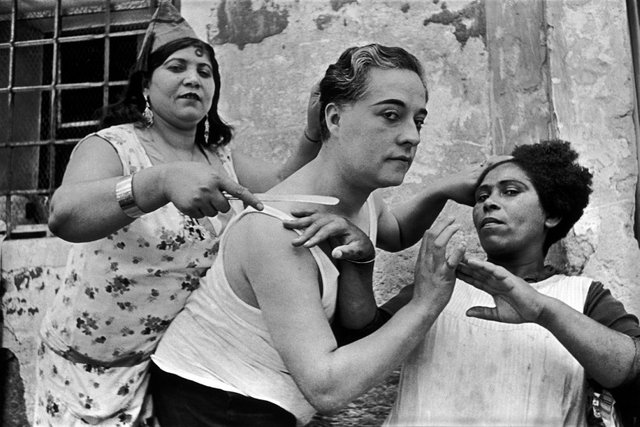
With a simple camera, a great deal of concentration and a unique sense for composition, he depicted people and events from all over the world. He had a rare intuition and ability to capture the most extraordinary as well as ordinary moments. His vision was to preserve the living moment. During his long career he documented some of the last century's major historical events. He was in Germany when the gates to the concentration camps were opened, in Spain during the civil war, in China when the Kuomintang government fell and Mao marched into Beijing, and in Paris when the winds of the radical left blew in 1968.
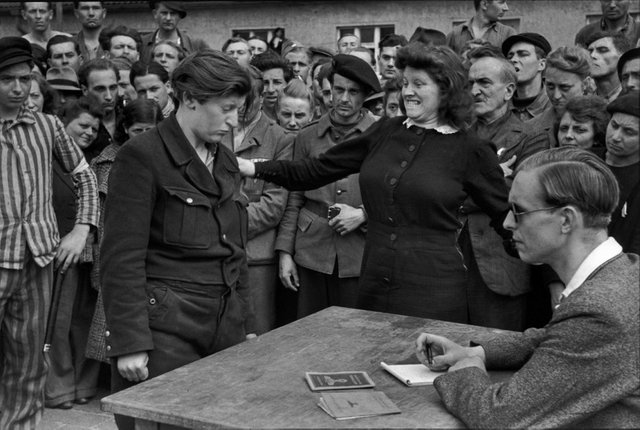
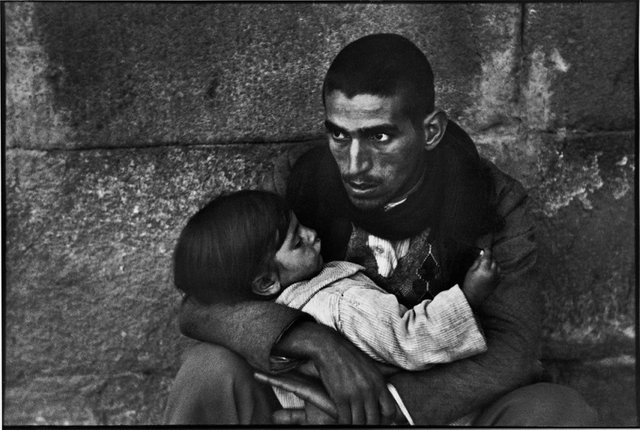
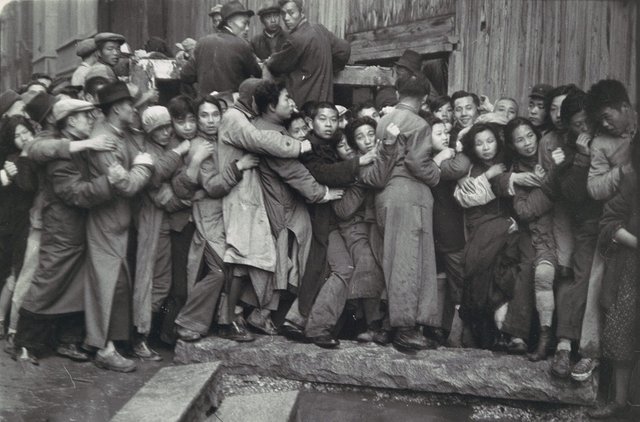
But his photos also highlighted the small events and the common man. When he were to depict the coronation of King George VI, he chose to turn the camera away from the royals and instead direct it towards the spectators in Trafalgar square. Cartier-Bresson said that you have to be committed to what you see through the viewfinder. Something that requires concentration. This is also where the essence of his photographs can be found, in the concentration of the subject and in the decisive moment.
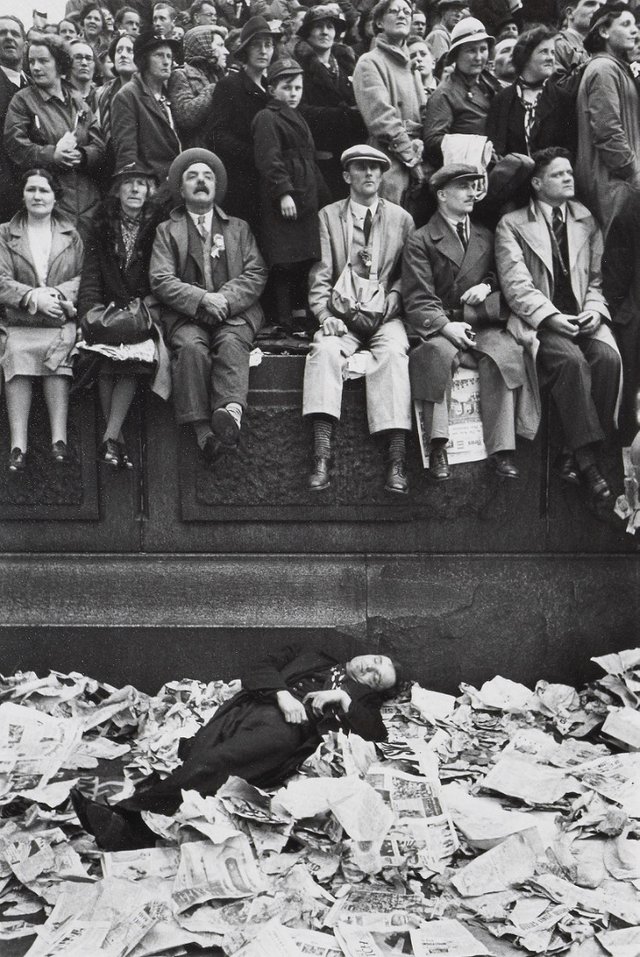
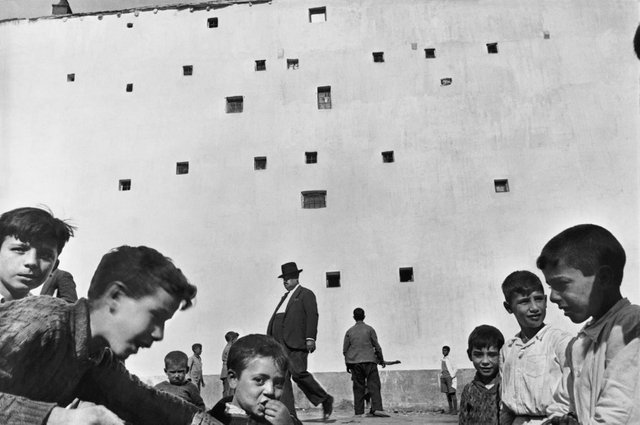
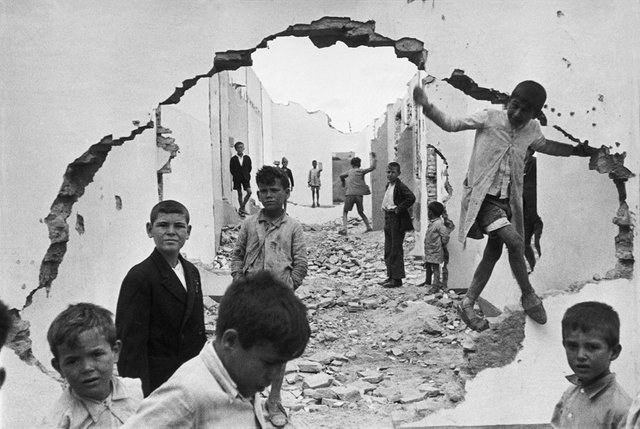
"One does not add composition as though it were an afterthought superimposed on the basic subject material, since it is impossible to separate content from form. Composition must have its own inevitability about it."
Cartier-Bresson's own photos confirm the accuracy of his reasoning above. He's probably one of the best examples of a photographer who completely relies on vision and seeing as a conscious activity, and on the photographic moment as a transfer of thought and an extension of this consciousness. Perhaps that is also why his interest in photography is connected to the magic moment when the time to becomes a point of now - something that can never be repeated.
— SteemSwede (art historian, forensic psychologist & painter)
This post has been ranked within the top 50 most undervalued posts in the second half of Dec 12. We estimate that this post is undervalued by $7.79 as compared to a scenario in which every voter had an equal say.
See the full rankings and details in The Daily Tribune: Dec 12 - Part II. You can also read about some of our methodology, data analysis and technical details in our initial post.
If you are the author and would prefer not to receive these comments, simply reply "Stop" to this comment.
Nice HCB post. I have seen his famous principle of the decisive moment explained as the optimal point in time to make the shot, when in a given scene. Things may start to come together and converge towards a possible shot... he was able to, first of all identify potential places where a scene could likely occur and then wait until that exact time when everything reaches its apogee ... and THAT is the decisive moment. Interesting idea. Personally i like his very surrealist ones the best. He did some photo journalism quite often and they are not all that great. But sometimes he just nailed it. He carried a camera all the time and could sometime disappear in the street if he spotted anopportunity
Thanks for this information!
@kus-knee (The Old Dog)